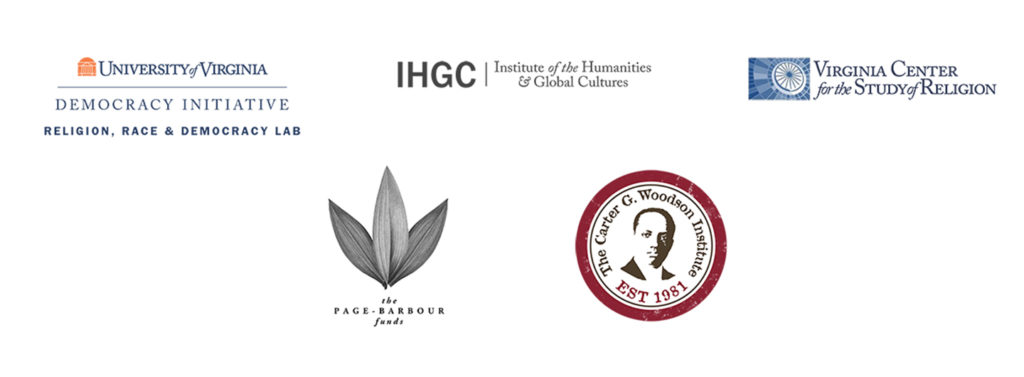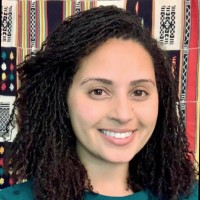“Religious” movements have been and continue to play a central role in the public sphere of African societies, driving social and political change, both shaping and challenging the dominant ideological, socio-economic and political formations. From prophetic politics of protest to poetry to anti-colonial militant movements, the papers in this panel explore the roles African religious movements have played in defining, changing, and challenging their socio-political orders.
Part of the virtual conference, Religion and Democracy on the African Continent: Colonial Legacies and Postcolonial Possibilities.
Format
Each panelist will deliver a 10-minute presentation, followed by a 5-minute Q&A. There will be a 10-minute break halfway through the session. Click titles below to read the provided abstracts.
Ousmane Kane, “The Bilād al-Sūdān, Scholarship and Islamic Cosmopolitanism”
Madina Thiam, “Tijani Archipelago: Pan-Africanism and Decolonization in Mopti”
Ebrima Sall, “Religious Leaders as Mediators and Power Brokers in West Africa”
Robert Vinson, “Through the Spectacles of Ethiopia: Prophetic Garveyite Politics in Segregationist South Africa”
Naseemah Mohamed, “Religion and Philosophy in the Zimbabwean African People’s Union Army”
Ayodeji Ogunnaike, “Yoruba Political Ontology, Non-competitive Democracy, and the Sacrality of Power”
Chair: Noah Salomon
Speakers
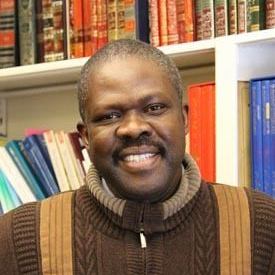
Ousmane Kane
Ousmane Kane, a scholar of Islamic studies and comparative and Islamic politics, joined Harvard Divinity School in 2012 as the first Prince Alwaleed Bin Talal Professor of Contemporary Islamic Religion and Society. Kane studies the history of Islamic religious institutions and organizations since the eighteenth century, and he is engaged in documenting the intellectual history of Islam in Africa. Kane has also focused on the phenomenon of Muslim globalization. His book Homeland Is the Arena: Religion, Transnationalism and the Integration of Senegalese Immigrants in America (Oxford University Press, 2010) looks at the community of Senegalese immigrants to the United States in New York and the importance these immigrants assign to their religious communities for the organization of their lives. His other books include Muslim Modernity in Postcolonial Nigeria (Brill, 2003), Beyond Timbuktu: An Intellectual History of Muslim West Africa (Harvard University Press, 2016), and, most recently, Islamic Scholarship in Africa. New Directions and Global Contexts (James Currey, 2021).
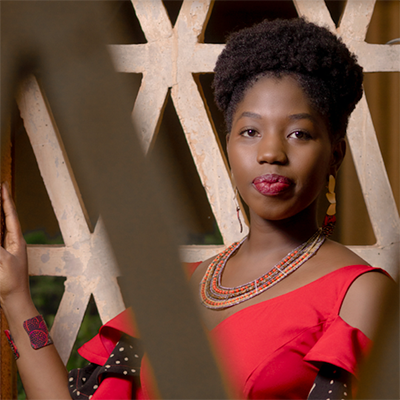
Madina Thiam
Madina Thiam is a doctoral candidate in History at the University of California, Los Angeles (PhD exp. spring ’22), and a Mellon/ACLS Fellow. In September 2022, she will join New York University as Assistant Professor of History and Africana Studies. Thiam works on Mali and the Sahel, with broad interests in African migrations and the connected social and intellectual histories of Islam across the Atlantic and Saharan worlds. Her PhD thesis, entitled “Seeking Freedom in the Sahel: Mobilities, Connectivity, and Islam, 1804-1960,” probes historical intersections between freedom, mobility, Islam and political change in the region, adopting a global and micro-historical approach. It draws on research she conducted in Mali, Senegal, France, England, Ireland, and Jamaica. Her research has been supported by the Social Science Research Council, American Historical Association, and African Studies Association, among others.
In addition, she is a member of the Projet Archives des Femmes, a Bamako-based digitization project that is collecting, safeguarding, and creating a public archive of papers of Malian women involved in the 1950s movement for independence, and post-colonial feminist activism. She is also part of a working-group on contemporary migrations in southern Africa.
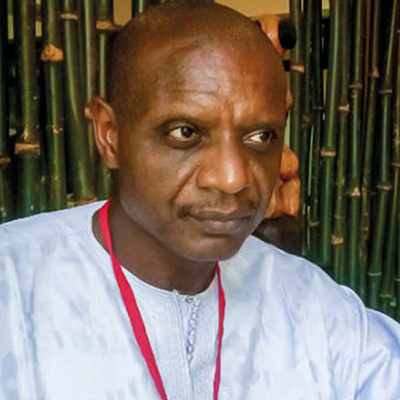
Ebrima Sall
Ebrima Sall is the Executive Director of TrustAfrica, a pan African foundation that promotes responsible citizenship and accountable leadership, and champions inclusiveness that is founded on justice. He has also, in the past, held other senior positions, including as Executive Secretary of the Council for the Development of Social Science Research in Africa (CODESRIA), Africa’s premier social science research council, from April 2009 to June 2017; and Senior Research Fellow at the Nordic Africa Institute in Uppsala, Sweden (2001-2004). Ebrima is a member of the Expert Group supporting the work of UNESCO’s Global Commission on the Futures of Education, and the Scientific Advisory Committee of UNESCO’s Management of Social Transformations (MOST) program. He is the (co-) author/editor of several publications on higher education, academic freedom, social movements, citizenship, governance, and post-conflict transitions and development in Africa.
He holds a PhD in sociology from University of Paris I-Pantheon-Sorbonne, was a post-doctoral fellow of Yale University’s Program in Agrarian Studies in 1997-98, and a Senior Research Fellow of the Center for African Studies, Harvard University (October 2017-February 2018).
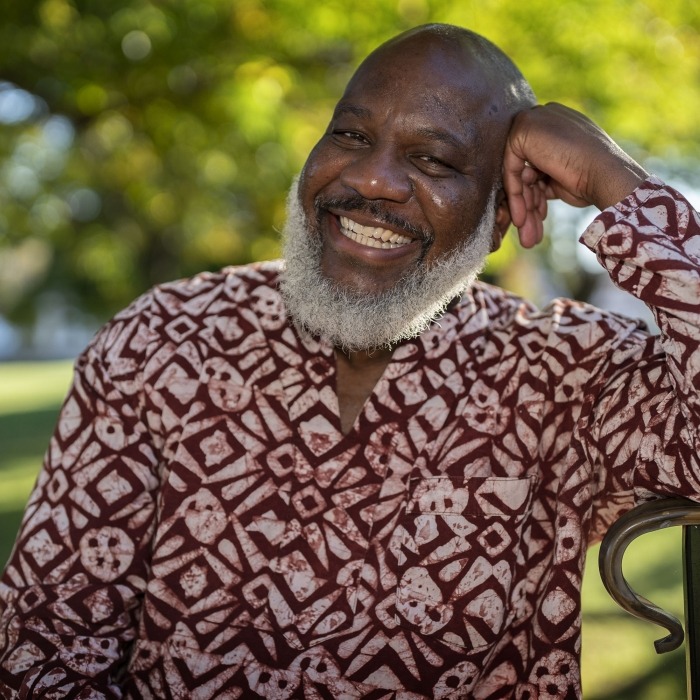
Robert Trent Vinson
Robert Trent Vinson is Director & Chair of the Carter G. Woodson Institute for African American & African Studies at the University of Virginia and a Research Associate at Stellenbosch University in South Africa. He is a scholar and teacher of 19th and 20th century African & African Diaspora history, specializing in the transnational connections between southern Africa, the Americas and the Caribbean. His first book was The Americans Are Coming!: Dreams of ’American Negro Liberation’ in Segregationist South Africa (2012) and his second book was Albert Luthuli: Mandela before Mandela (2018).
Vinson currently serves as President of the Association for the Study of the Worldwide African Diaspora (ASWAD), the world’s premier professional organization of African and African Diaspora scholars. He also serves on the Board of Directors of the African Studies Association and on the editorial board of Michigan State University Press and of Safundi: The Journal of South African and American Studies.
Vinson earned his Ph.D. in African History from Howard University. Prior to his appointment at UVA, Vinson taught at Washington University in St. Louis and more recently, William & Mary, where he was Frances L. and Edwin L. Cummings Professor of History & Africana Studies. At William & Mary, Vinson was also the first Chair of the Lemon Project, which documents, preserves and disseminates scholarship that uncovered the College’s long histories of slavery and Jim Crow segregation.
Naseemah Mohamed
Naseemah Mohamed (DPhil in Education, University of Oxford) is a Postdoctoral Researcher at the University of Virginia’s Frank Batten School of Public Policy and Global Policy Center, where she researches, teaches and writes on the connections among education, conflict, and public policy. A Zimbabwean Rhodes Scholar, she graduated in 2014 with an MSc with Distinction from Oxford’s Comparative and International Education Department and holds a B.A. from Harvard University. From 2015–16 she served as the director of African programs for Harvard’s Pre-Texts Initiative, an arts-based teacher training program that promotes creativity, leadership skills and critical thinking in kindergarten through university classrooms. Naseemah is the co-founder of two organizations—AfricanIvy, an organization that helps African students apply to universities, and of the Center for African Cultural Excellence and its flagship Writivism Workshop that hosts writing workshops across the African continent and links published African writers with aspiring authors.
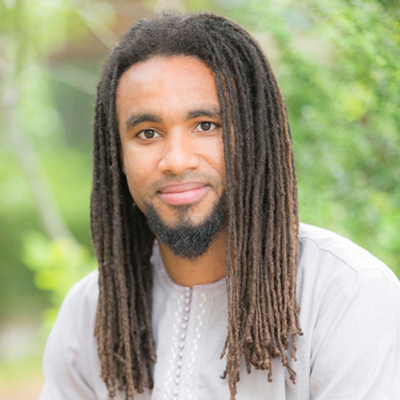
Ayodeji Ogunnaike
Ayodeji Ogunnaike is Assistant Professor of Africana Studies at Bowdoin College. Professor Ogunnaike teaches interdisciplinary courses on Africa and the African Diaspora that center around the important role religion plays in these communities. His research focusses mostly on Yoruba oriṣa worship in Nigeria, but also addresses Islam in Africa, Christianity in Africa, and diaspora religions—Brazilian Candomblé in particular. Having studied Ifa divination with a high priest and diviner in Nigeria, he has a keen interest in indigenous African intellectual traditions and ways of knowing. His current book project, How Worship Becomes Religion, analyzes how the worship of traditional Yoruba deities originally differed greatly from Western notions of “religion” but eventually became the most widespread and celebrated indigenous African religion through contact with modernity and mission Christianity. He is also currently working on a children’s book of Yoruba mythology with his brothers Oludamini and Olumakinde and has been developing and curating an online library of Ifa orature.
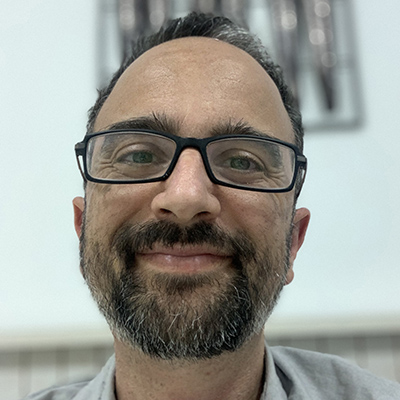
Noah Salomon
Noah Salomon (PhD University of Chicago) is the Irfan and Noreen Galaria Research Chair and Associate Professor in Islamic Studies in the Department of Religious Studies at the University of Virginia. He also holds a courtesy appointment in the Department of Anthropology. Salomon’s research broadly concerns the intertwining of religious criticism, political aesthetics, and Islamic practice, with a focus on contemporary Africa and the Middle East. His first book, For Love of the Prophet: An Ethnography of Sudan’s Islamic State (Princeton University Press 2016, précis) is a study of the development of, and eventual crises in, new forms of political community that arose in Sudan during its “national salvation” period in the first two decades of the 21st century. It won the 2017 Albert Hourani Prize from the Middle East Studies Association and an Award for Excellence in the Study of Religion (analytic/descriptive studies) from the American Academy of Religion. Subsequent research has focused on the establishment of state secularism in the new nation of South Sudan, as a mode of unraveling the Islamic State, and the concomitant construction of a Muslim minority as part of a nascent project of nation-building. More recently, Salomon has been writing on the phenomenological and practical interlacing of religion and revolution, with a particular focus on the popular uprisings of 2019-2020.
From 2018 to 2023, Salomon is an Andrew W. Mellon Foundation New Directions Fellow working between Beirut, Muscat, and Khartoum on a book project that explores Islamic modes of performing, managing, and negotiating Muslim difference, particularly at inflection points of social and political change. Prior to coming to the University of Virginia, Salomon spent ten years at Carleton College, where he was Associate Professor of Religion and Director of Middle East Studies (2016-2019). He was a member of the Institute for Advanced Study (Princeton, NJ) in the School of Social Science for the 2013-14 academic year.
Co-sponsored by
